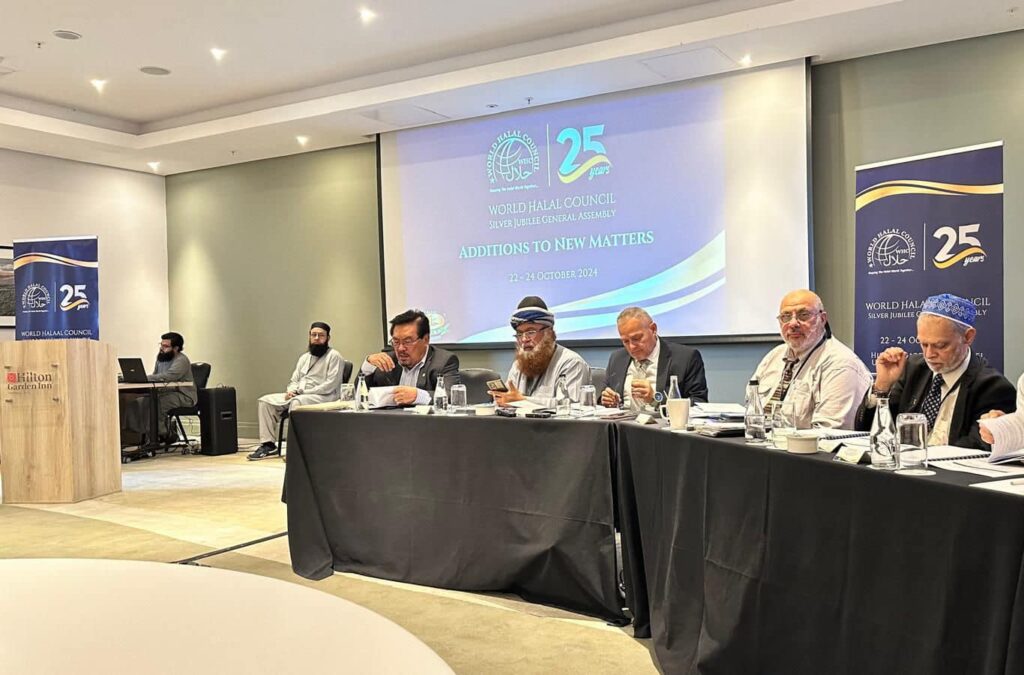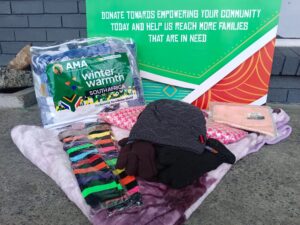
By Azra Hoosen
Durban has played host to a successful International Halaal Conference that coincided with the World Halaal Council’s (WHC) 25th anniversary.
The conference was organised by the South African National Halaal Authority (SANHA) in collaboration with the World Halaal Council (WHC). Held at the Umhlanga Arch Convention Center in Durban recently, the conference gathered distinguished leaders, innovators, and industry experts from across South Africa and globally.
The conference’s theme this year, “Halaal Beyond Boundaries”, captured the essence of a rapidly growing international market with consumers more conscious than ever about Halaal standards.
Moulana Muhammad Saeed Navlakhi, Director at SANHA, told Al-Qalam about how the World Halaal Council was formed. He explained that it was established in 1999 when the halaal certification standards were applied. Back then, it was a disjointed outfit. It was then proposed that all the halaal bodies be combined, and everybody from the world stage embraced it, and then the council was formed. It took some time, until about 2005, for the body to form a structure, a foundation and formalising registration. It was formally registered in the Philippines, and over the years, it has grown.
“The mandate of the WHC is purely to try and keep halaal certification bodies together, update them on trends, collaborate with each other, and create a network. Because it’s impossible to certify a particular product when ingredients are coming from several different countries into one single product, without collaboration, it becomes impossible to effectively and efficiently certify a product,” he said.
Moulana Navlakhi estimates that about 36 countries are currently part of the WHC, but he highlighted challenges that exist in the global industry in terms of different standards being applied or the lack thereof. You may get a product that is certified in one place but not accepted in another. “It becomes a challenge if your product manufactured contains gelatine from a non-Halaal slaughtered animal; it is not going to be globally accepted, and there are going to be question marks,” he said.
The event focused on key trends and emerging opportunities within the global Halaal industry, with guest speakers covering topics essential to the industry’s future.
Zafar Gedikli, President of the World Halaal Council (WHC), noted the Council’s celebration of its 25th Silver Jubilee anniversary, describing it as a trusted global Halaal umbrella organisation. According to Gedikli, unlike the hundreds of Halaal certifiers worldwide, WHC comprises only reliable members who adhere to strict guidelines to ensure Halaal integrity and unity. Established to standardise Halaal certification and accreditation, the WHC is headquartered in Turkiye and promotes collaboration and knowledge-sharing among members. SANHA, a founding member, holds an executive role within the organisation.
“As far as I know, South Africa has been the first to start a Halaal organisation. They became a very good example; after South Africa, other countries where Muslims live in the minority started to imitate the same. It is very important. South Africans invented such a way, whereby Muslims can find Halaal food stores they can consume with families and friends safely, so it is a big achievement, I am proud of South Africa,” he said.
A formidable lineup of experts discussed contemporary issues and the many challenges faced by the Halaal industry today through presentations and engaging panel discussions.
The Secretary General of the Jamiatul Ulama South Africa (JUSA), Moulana Ebrahim Bham, said his constant message has always been of unity and cooperation, especially in this particular field of Halaal. “It is surprising that some non-Muslim countries who sometimes have a dubious track record with regards to Islam and Muslims, like the Netherlands, have made one of their cities a halaal hub. How do we, who are supposed to be at the forefront regarding Halaal, not realise its importance,” he remarked.
He believes that SANHA seems to be more recognised, valued, and appreciated in other countries than it is locally. “South Africa tends to become complacent; we don’t realise the value of khidmat in this service, which in many countries is looked upon as an ideal or something to emulate,” he said.
Hafidh Ameen Hassen, CEO of Standard Bank Shari’ah Banking, highlighted the importance of discussing the synergies between the Islamic Financing industry and the Halaal Food industry. “Oftentimes we feel there isn’t synergies, but we as Muslims believe: “Oh you who believe, we must enter into Islam in totality”, so just as we have created significant structures and systems to ensure our food is Halaal, In Sha Allah we can learn from the Halaal industry and try to implement some of these into our finance transactions and to ensure our community places that much emphasis on Islamic finance and eliminate Riba (Interest) from their lives,” he said.











